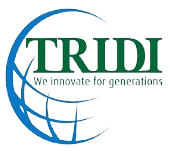TROPICAL INSTITUTE OF DEVELOPMENT INNOVATIONS GIVES HANDS ON SKILLS TO ITS STUDENTS
April 21, 2022GOVERNMENT SHOWS COMMITMENT IN PROMOTING SILKWORM FARMING IN UGANDA
April 27, 2022Uganda stands a great opportunity with the new developments in the silk industry, silk post-cocoon processing machinery installation being one of the tremendous ones, has boosted cocoon productivity of all sericulture stations under the Tropical Institute of Development Innovation (TRIDI).
The country so far has, 2 fully equipped post-cocoon processing silk factories, recently completed and set to start production of the silk fabric

The factories, under the supervision and execution of the TRIDI, have been successfully set up in Kween and Sheema Districts, respectively.
Installing of Silk reeling machinery, has since set all the TRIDI staff, working tirelessly, like termites, to have all the required amounts of cocoon, for drying and reeling
One cocoon drier requires about 500 kgs of cocoon, per day, which are dried within 4 hours and after sent to the next levels of production.

Therefore this means that in a day, a whole tonne of cocoons can be dried and forwarded to the next session of reeling and reeling into raw silk fabric
TRIDI, in the leadership of Clet Wandui Masiga, PhD, the Sericulture Project Principal Investigator, commenced installation of post-cocoon processing machinery last year, in July when they imported Chinese engineers into the country to come install and train our own citizens on how to operate these machines.

TRIDI received and launched silk reeling machinery last year in April and has since experienced tremendous production in the rearing cycles and harvests of cocoons, as an average production per station recorded, is 80kgs per cycle
Other stations like Kween, Kamuli, Rubaare and Busitema have had great cocoon outputs amounting up to 325, 284, 164 and 143 kgs, respectively, in their last rearing

These numbers continue to grow per rearing cycle and TRIDI envisions that by this time next year, fabrics will be processed, given the consistency in cocoon outputs
Installing machinery continues to broaden activities, create bigger opportunities and improve productivity through bettering the sericulture value chain

Clet Wandui Masiga, TRIDI’s Principal Investigator of the sericulture project, explains that, “Production has tripled ever since the installation commenced, as the drier has to be put to use day and night. So all station managers have put it to notice that, work and productivity have doubled efforts for better output and to keep up to the speed of the drying and silk production cycle.”
Machinery employment has continued to improve the working and productivity standards as all workers have seen the silk industry having greater opportunities and a much better future and so are working harder to bring a once envisioned dream to reality
With the installation of these machines, Uganda stands a great opportunity to great revenue and much better, more employment opportunities for her population, leading to improved standards of living through improved household incomes, with the great number employment opportunities created by the project.
The completion of the installation of these post-cocoon processing factories, Uganda is ready to start producing her own silk fabrics, as soon as machines are operationalized and workings officially commenced.
Uganda has been exporting products of sericulture like cocoons and raw silk yarn since the sericulture project commenced in 2017 in the country, and with the installation complete, the country is going to start producing and earning along the whole sericulture chain, right from the cultivation of mulberry to rearing of the silkworms and final production of the silk fabric, which can be consumed both by the citizens and the global market.
Silk is a highly demanded fabric, much as it is much pricier compared to cotton, wool and polyester fabrics.
Silk continues to be the leading in fabric quality, whose returns are much more higher than the inputs.
Uganda’s silk industry continues to topple over other agro-based industries like coffee, cotton, tobacco, sugarcane, among others, and soon enough, not only the workers at TRIDI but also the country, too, will earn much more, silk being a queen-fabric that earns a lot of revenue on the global market.
TRIDI’s sericulture will set Uganda’s economy to a much greater position on the global market, with consistency in production and exportation of silk products.
Story Compiled by Mercy Scarlet Kigai, P.R.O, TRIDI.

